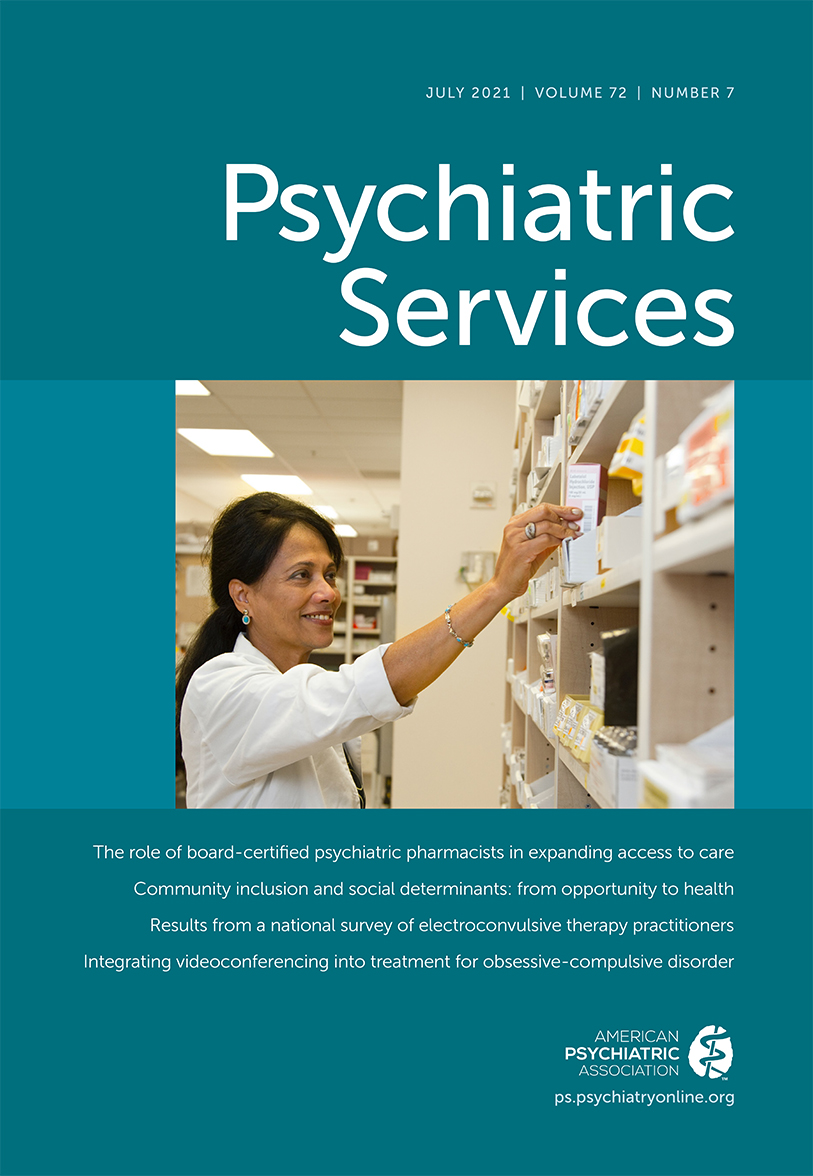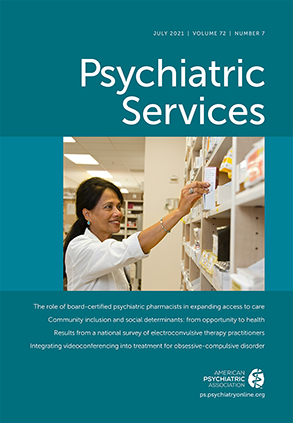In this month’s issue, Bui et al. (
1) examine the impact of receipt of mental health services on health care expenditures for U.S. adults with major chronic health conditions. They found that use of mental health services in the preceding year was associated with a smaller increase in overall health care expenditures the subsequent year, and the effect was largest for persons receiving medication plus psychotherapy.
Although the study had some limitations, results are consistent with prior research showing cost offsets from higher use of mental health services. The authors explain that these offsets may be related to downstream effects on utilization of mental or physical health care as a result of improvements in mental or chronic physical conditions.
What are the policy implications of these findings? Bui et al. argue that policy efforts to promote clinical integration of mental health and general medical care could greatly expand access to mental health services for chronic illness populations. Patients with chronic medical conditions frequently also have mental health conditions such as depression and anxiety; addressing mental health in a timely manner with evidence-based care at patients’ health care homes is beneficial not just to patients but appears also to make good business sense. Moreover, cost-of-illness studies demonstrate that the economic burden associated with untreated mental health conditions is costly to society in many other ways, including productivity losses for patients and caregivers and social service utilization.
Because Bui and colleagues conducted their study before the full implementation of the Patient Protection and Affordable Care Act (ACA), they could not assess its impacts. The ACA greatly reduced barriers to accessing care for mental health and substance use disorders through incentives for states to expand Medicaid eligibility and other key provisions, including easier access to private insurance coverage, the expansion of the Mental Health Parity and Addiction Equity Act, prohibitions on preexisting exclusions, and incentives for Medicaid-financed health homes.
However, more needs to be done to enable unfettered access to care for mental and substance use disorders. Barriers disproportionately affecting socioeconomically disadvantaged people and people from racial-ethnic minority groups include poor affordability, availability, and geographic proximity of services; short-sighted overuse of utilization management tools to curb health care costs; and a dearth of culturally competent care.
As the nation reckons with the toll of the COVID-19 pandemic, we are facing a surge in need for behavioral health care. Policy responses to deal with the aftermath of the pandemic have greatly facilitated access to such care, but most remain temporary. Several provisions have promoted adoption of telehealth, facilitated access to medications for opioid use disorder, and strengthened the workforce. As policy makers evaluate whether these policies should become permanent in the postpandemic period, they should consider potential savings in terms of direct health care and social costs as well as the impact of these temporary innovations on productivity and quality of life.
With the recent passage of the COVID-19 relief package, which includes approximately $4 billion in funding for programs that support prevention and treatment of behavioral conditions, the nation has a unique opportunity to transform health care delivery and focus on decreasing health and health care disparities in society. Investment in policies that promote equitable expansion of a well-trained, diverse, and culturally competent workforce will improve care for disadvantaged communities. Foremost, there is a need for public policy that utilizes a structural competency framework to modify the upstream factors that contribute to poor health outcomes and disparities. Structural racism, economic instability, financial vulnerabilities, poor housing and living conditions, and food insecurities are a few examples of extraclinical targets for policy reform aimed at improving health and well-being.

